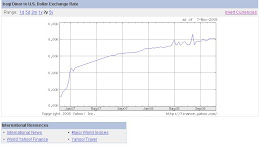Yaljehin Ali Mahdi said: "These projects are necessary to solve the crisis in the city".
Yaljehin explained that "there are three electric power stations being worked on; they are: Imam Qasim, Al-Wasti and Mansuriyah, costing $ 1 million each, with a production capacity of 31, 5 megawatts". He pointed out that these stations are in their final stages and will be operated soon.
Yaljehin added that these stations will not reduce the hours of power cutoffs or increase it but will improve the quality of electric power.
He continued: "We have plans for 2007 to implement a number of electricity projects in the districts of Kirkuk governorate, includes the construction of stations in the areas of: Karahnger, Darman, Abbasiyah and Huwayjah to cover all the areas with electric power".
Yaljehin said that these projects are financed by many budgets like: the annual plans of the Ministry of Electricity, the budget of developing regions and accelerating the reconstruction of provinces associated to the Ministry of Finance and the budget of strategic projects within the province. He said that the share of Kirkuk from the general funding, this year, for electric power is about 11% from the northern region, and that this ratio will increase if the generated amount of power increases.
Kirkuk produces electricity through three main stations: southern Taza, Mullah Abdullah gas station and the western station of Al-Dibs. Two new stations within Taza electric station were opened, this year, at a production capacity of 235 megawatts.
In spite of the existence of these giant stations in the city, the hours of power cutoffs increased, since the past three weeks, and the prices of AMP, which the people buy from private generators, went high from four thousand iraq dinar to seven thousand iraqi dinars.
Faris Ahmed, one of the private electricity generators owners, attributes the high prices of AMP to the increase of the price of (kerosene), which reached 250 thousand iraqi dinars per barrel after being 200 thousand iraqi dinars. This makes it difficult for the owners of generators to buy large amounts of it, forcing them to raise prices of AMP to cover the high expenses of fuel.(Source)AlSabah

